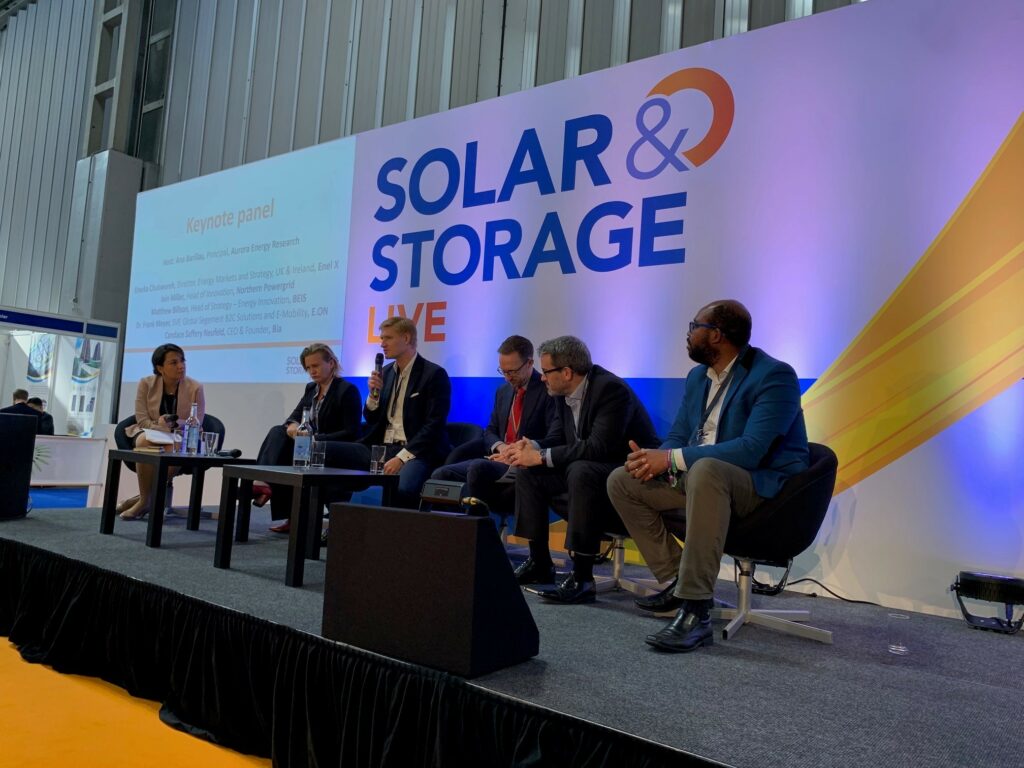The power sector must focus on collaborating and dedicate less time lobbying against each other if the industry is to deliver towards the UK’s net zero targets.
That was one of the principal conclusions from the opening keynote discussion at this week’s Solar & Storage Live exhibition in Birmingham, UK.
Matthew Billson, head of strategy for energy innovation at the Department for Business, Energy and Industrial Strategy (BEIS) made the recommendation during this morning’s panel, commenting that the government’s decision to adopt a legally binding net zero target had meant that all clean power technologies would need to contribute.
The previous target of delivering an 80% reduction in carbon emissions by 2050, Billson said, had meant that there was room for debate over the role nuclear and other technologies like carbon capture and storage (CCS) could play, but the need to now remove all emissions from the economy had rendered that discussion null and void.
With that element of competition removed, the clean power sectors must now work together and put an end to any cross-sector lobbying or infighting, Billson said.
There will also be an impetus on the clean energy sector making decarbonisation “as simple and attractive as possible” for consumers to engage. Billson said that while challenger suppliers like Bulb, Octopus and OVO had made great strides in engaging with their customer base on the subject of decarbonisation, incumbents such as E.On had not.
However, one attendee put it to Billson that collaboration was also needed in the halls of Westminster, raising the prospect that departments like HM Treasury had enacted policies that may have counteracted other clean energy initiatives.
From 1 October 2019, VAT added to domestic solar and storage installations will rise from 5% to 20% in certain cases, a decision the UK’s distributed power sector has attacked for creating yet more obstacles to decarbonisation.
Billson conceded that it was necessary that all sectors of governments must “work better” to stimulate decarbonisation, and must indeed find the right mix of policies to achieve that, but was quick to stress that HMG had been pressing ahead with its domestic agenda against a backdrop of international uncertainty caused by the continuing Brexit negotiations.





